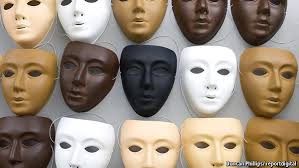From Wikipedia, the free encyclopedia
Norsemen refers to the group of people who spoke what is now called the Old Norse language between the 8th and 11th centuries. The language belongs to the North Germanic branch of the Indo-European languages; it is the earlier form of the languages most commonly spoken in Scandinavia.
Norseman means "person from the North" and applied primarily to Old Norse-speaking tribes who settled in southern and central Scandinavia. They established states and settlements in England, Scotland, Iceland,Wales, the Faroe Islands, Finland, Ireland, Russia, Greenland, France, Ukraine, Estonia, Latvia, Lithuania,
Germany, and Poland, as well as outposts in Sicily and North America.
Germany, and Poland, as well as outposts in Sicily and North America.
The Old Frankish word Nortmann "Northman" was Latinized as Normanni and then entered Old French asNormands, whence the name of the Normans and of Normandy, which was settled by Norsemen in the 10th century.[1][2]
Other names
As today, in the early medieval period Vikings was a common term for Norsemen, especially in connection with raids and monastic plundering by Norsemen in the British Isles. The Norse were also known as Ascomanni,ashmen, by the Germans,[3] Lochlanach (Norse) by the Gaels and Dene (Danes) by the Anglo-Saxons.
The Gaelic terms Finn-Gall (Norse Viking or Norwegian) and Dubh-Gall (Danish Viking or Danish) and Gall Goidel (foreign Gaelic) were used for the people of Norse descent in Ireland and Scotland, who assimilated into the Gaelic culture.[4]
However, British assumptions of where the Vikings came from were not quite correct. Those who plundered Britain lived in what is today Denmark, Scania, the western coast of Sweden and Norway (up to almost the 70:th latitude) and along the Swedish Baltic coast up to around the 60:th latitude and Lake Mälaren. They also settled on the island of Gotland. The border between the Norsemen and more southerly Germanic tribes, the Danevirke, today is located about 50 kilometres (31 mi) south of the Danish-German border. The southernmost living Vikings lived no further north than Newcastle-upon-Tyne, and travelled to Britain more from the east than from the north.
The northern part of the Scandinavian peninsula (with the exception of the Norwegian coast) was almost unpopulated, but the few who lived there were Sami, the native people of northern Sweden and large areas of Norway, Finland and the Kola peninsula in today's Russia.
The Slavs, the Arabs and the Byzantines knew them as the Rus' or Rhōs, probably derived from various uses of rōþs-, i.e. "related to rowing", or from the area of Roslagen in east-central Sweden, where most of the Vikings who visited the Slavic lands came from. Archaeologists and historians of today believe that these Scandinavian settlements in the Slavic lands formed the names of the countries Russia and Belarus.
The Slavs and the Byzantines also called them Varangians (ON: Væringjar, meaning sworn men or from Slavic варяги supposedly deriving from the root "вар"—"profit", as coming from the North they would profit by trading goods and not producing them, which had a negative connotation in Slavic culture of that time), and the Scandinavian bodyguards of the Byzantine emperors were known as the Varangian Guard.
In the Old Norse language, the term norrœnir menn (northern men), was used correspondingly to the modern English name Norsemen, referring to Swedes, Danes, Norwegians, Faroe Islanders, Icelanders, etc.
The modern Scandinavian languages have no common word for Norsemen. Usually they are referred to as Vikings: Vikinger in Danish and Norwegian, and Vikingarin Swedish.
The word nordbo, (Sw.: nordborna, Da.: nordboerne, No.: nordboerne or nordbuane in the definite plural) is used for both ancient and modern people living in the Nordic countries and speaking one of the Scandinavian Germanic languages. The modern people of Norway, Sweden and Denmark identify themselves asskandinaver (Scandinavians).
On occasions, in Sweden (but rarely in Norway or Denmark),[citation needed] Finland is also mentioned as a "Scandinavian country". The Finnish language is not Germanic or even Indo-European, but Finland was for around six centuries a part of Sweden (late 12th century to 1809), and around 6% of the Finnish population still use Swedish as their first language. In the Åland islands Swedish is by far the dominant language, but elsewhere in Finland the share of Swedish-speaking people has been dropping ever since Finland became a free country in 1918, after World War I. Iceland, Greenland, and the Faroe Islands are also geographically separate from the Scandinavian peninsula. The term Nordic countries is therefore used to encompass the Scandinavian countries, Iceland, Greenland, the Faroes, and Finland.[6]
Norse clothes in the Swedish Museum of National Antiquities in Stockholm
Statues of Norse explorers at L'Anse aux Meadows
Source: http://en.wikipedia.org/wiki/Norsemen





No comments:
Post a Comment